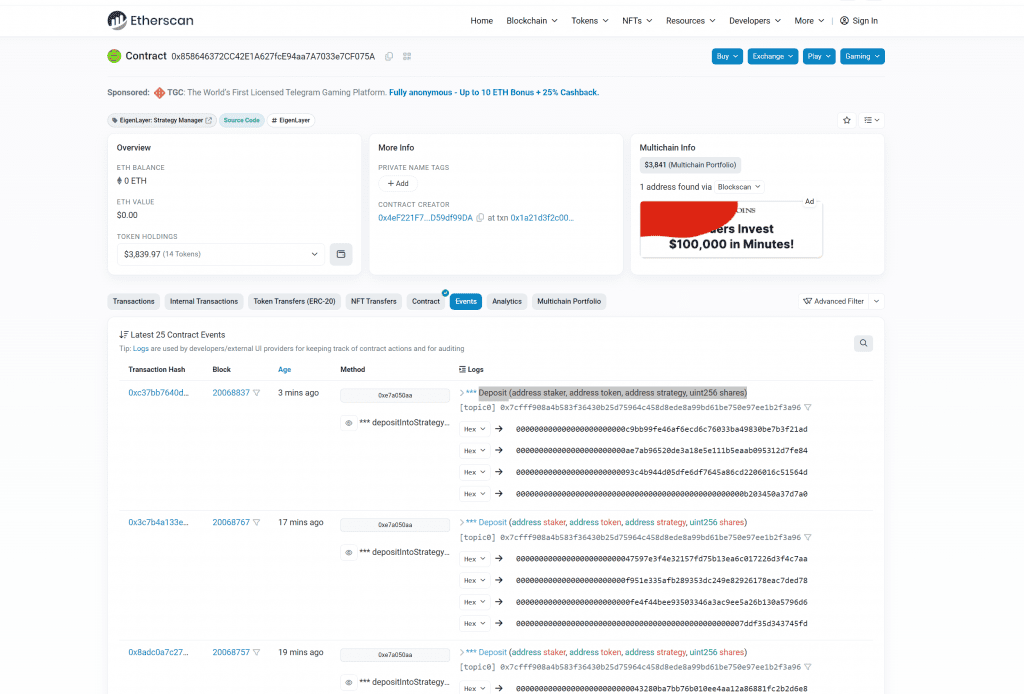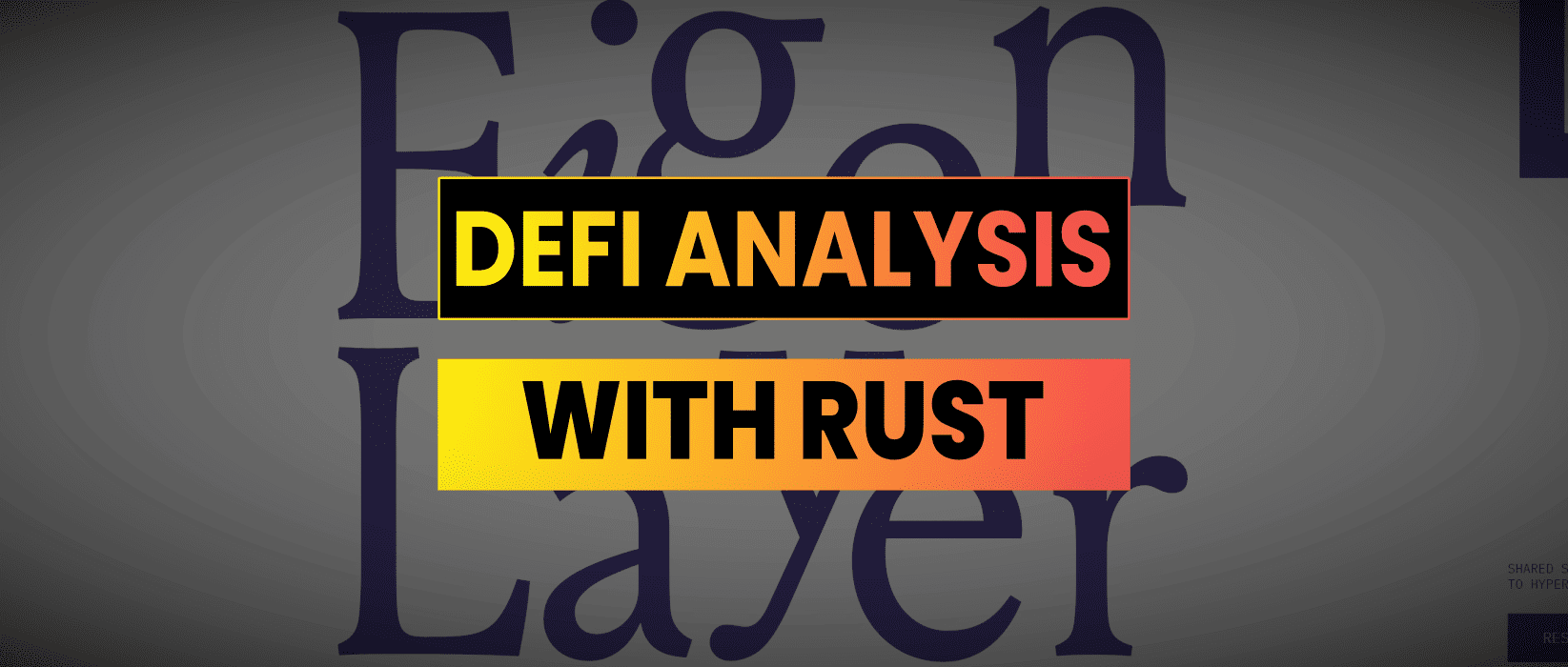In this tutorial I’m going to provide some code and show you how to monitor the number of depositors to Eigenlayer over the last 24 hours.
We will be using Rust with the Tokio and Ethers libraries along with the Infura API which you can get a free key from here.
The first thing we will do is take a look at the smart contract which holds deposits on etherscan: https://etherscan.io/address/0x858646372CC42E1A627fcE94aa7A7033e7CF075A#events

You can see the Deposit events coming in here and this is what we will be trying to track.
Let’s start by creating a new rust repository
cargo initNow let’s add some dependencies to Cargo.toml
ethers = "1.0.0-beta.2"
tokio = { version = "1", features = ["full"] }Next take a look at the code in src/main.rs and copy this in alongside your Infura API key on line 7. Make sure you don’t upload the code to Github with your API key still in it, for extra points use env variables.
Full code repository can be found here: https://github.com/jamesbachini/EigenLayerMonitor
use ethers::prelude::*;
use ethers::utils::hex;
use std::convert::TryFrom;
use std::sync::Arc;
use tokio::runtime::Runtime;
const INFURA_API_KEY: &str = "";
const POOL_ADDRESS: &str = "0x858646372CC42E1A627fcE94aa7A7033e7CF075A";
const TOPIC: &str = "0x7cfff908a4b583f36430b25d75964c458d8ede8a99bd61be750e97ee1b2f3a96";
async fn get_block_24_hours_ago(provider: Arc<Provider<Http>>) -> Result<U64, Box<dyn std::error::Error>> {
let current_block_number = provider.get_block_number().await?;
let average_block_time = 13; // average block time in seconds
let blocks_24_hours_ago = (24 * 60 * 60) / average_block_time;
let estimated_block_number = current_block_number - blocks_24_hours_ago;
println!("Target Start Block: {}", estimated_block_number);
Ok(estimated_block_number)
}
async fn calculate_deposits(provider: Arc<Provider<Http>>, pool_address: &str, topic: &str, from_block: U64) -> Result<usize, Box<dyn std::error::Error>> {
let filter = Filter::new()
.address(pool_address.parse::<Address>()?)
.from_block(from_block)
.to_block(BlockNumber::Latest)
.topic0(ValueOrArray::Value(H256::from_slice(&hex::decode(topic.trim_start_matches("0x"))?)));
let logs = provider.get_logs(&filter).await?;
Ok(logs.len())
}
fn main() -> Result<(), Box<dyn std::error::Error>> {
let runtime = Runtime::new()?;
runtime.block_on(async {
let provider = Arc::new(Provider::<Http>::try_from(format!("https://mainnet.infura.io/v3/{}", INFURA_API_KEY))?);
let from_block = get_block_24_hours_ago(provider.clone()).await?;
let total_depositors = calculate_deposits(provider.clone(), POOL_ADDRESS, TOPIC, from_block).await?;
println!("Total Depositors: {}", total_depositors);
Ok(())
})
}We start by estimating the block 24 hours ago based on a 13 second block time. This isn’t particularly accurate but it’s good enough for this example.
We then download the logs for the last 24 hours by topic. The Keccak topic hash is taken directly from etherscan, see [topic0].
We then count the number of results and print that out.
To run the application use:
cargo run
There you have a quick way to monitor transactions on Ethereum using Rust and Ethers. You could take this further by calculating the value of those deposits or doing more in-depth analysis of historical data.


